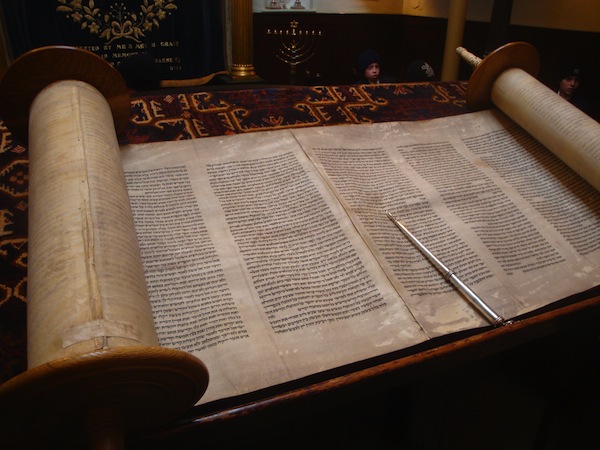Just as in life outside shul we don’t understand everything we encounter, we don’t all necessarily understand the Torah reading and other parts of the High Holiday service. The High Holidays serve as a metaphor for life itself. (photo from flickr / Lawrie Cate)
Throughout the High Holidays, we repeat in the liturgy pronouncement after pronouncement about our lack of control: we are born against our will, we die against our will, we are but clay in the hands of God, we turn our eyes heavenward as children before a parent, and as slaves before a master. It would be dissonant in such an environment to try to assert our autonomy, to try to shape the experience around our own emotional needs.
And, while we want the High Holidays to be relatable for people, the season by necessity must not be customized to the individual. This is because their meaning lies precisely in the challenge of giving up our individual sense of entitlement in favour of something more important: meaning.
The High Holidays serve as a metaphor for life itself. During this season, we enter into an experience that has been curated for us, that existed before we ever did and which has elements that we are comfortable with and elements that challenge us. I may find myself standing in a synagogue next to people I don’t know, reciting words that I don’t know or would never have written, on a date that means very little to me personally except as a construct of the Jewish calendar.
This is true to life in general: I participate in a world that I don’t completely shape, with others who think differently than I do, within a system that I did not create. We do not choose to be born, nor to which families, nor under what circumstances or accompanied by what baggage. We likewise do not choose what natural successes or tragedies befall us. And, while we do our best to shape our lives, so much of the table is set for us and is beyond our control.
The High Holidays then bid us instead to think about meaning, about the control we do have. If life is not about what we choose, it is about how we choose to engage with what we encounter. We choose how we are going to interpret and how we are going to make meaning of it. How will we choose to see life, and how will our attitudes guide our actions? We may choose to read what we experience charitably or stingily, optimistically, realistically or nihilistically, or more often a messy combination of all of the above. But make no mistake: it is our own choices that will give rise to what we make of those lives that are given to us, to those circumstances that challenge us.
Eschewing a sense of entitlement and control in favour of a sense of meaning and potential is the work of the High Holiday season. It allows us to reflect on how and why we get in our own way, how our sense of entitlement, whether consciously or subconsciously, overrides our good judgment. This helps us to understand the idea of repentance, which is at the core of the High Holidays.
The talmudic sage Rava declared: those who are willing to forgive others easily will likewise be forgiven by God. The language attributed to him is literally, “One who overlooks his/her measurements, [God will overlook all of their sins].” Forgiveness, too, is about letting go of what we may still feel we are owed in favour of building relationships with others. Rather than standing on ceremony over what could have been, I am willing to loosen the reins, to be open to what might emerge. Oftentimes what needlessly keeps us from forgiveness is a focus on what we deserve, what we are entitled to. And, when this happens, we find ourselves once again getting in our own way and holding on to a vision of complete control over what happens or does not happen to us.
Letting go of trying to control the experience is hard. But it can also be liberating. For the High Holiday season, it relieves us of the expectation that we need to relate to everything. More importantly though, for life itself, it relieves us of the expectation of perfection – from ourselves, from others, from life itself.
At the same time, it reminds us of the depth of the human heart and the power of our own will in deciding how we will chart our path forward: that we can come to synagogue not only to be forgiven, but also to forgive; not only to be moved, but to choose to move ourselves.
Wishing all a meaningful New Year.
Dr. Elana Stein Hain is the director of faculty and a senior fellow at the Shalom Hartman Institute of North America, where she serves as lead faculty, directs the activities of the Kogod Research Centre for Contemporary Jewish Thought and consults on the content of lay and professional leadership programs. Articles by Stein Hain and other institute scholars can be found at hartman.org.il. This article was first posted on Times of Israel.

